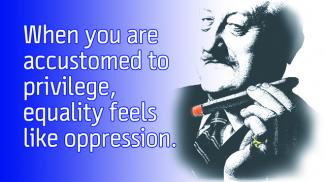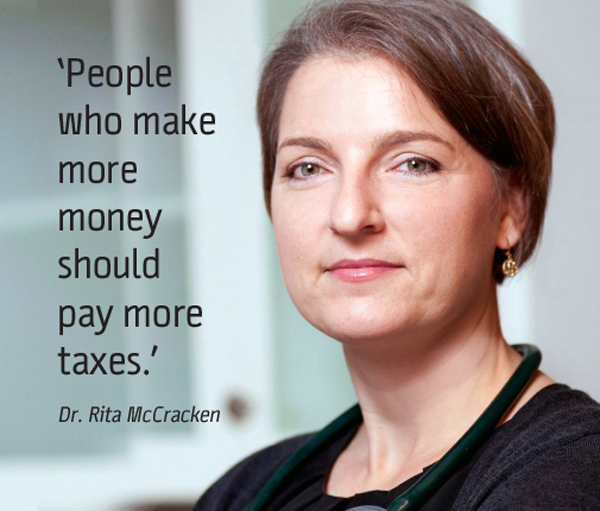LOOPHOLE LUST
Wealthy rage over fair tax changes

THREE DOWN. A BAZILLION MORE TO GO. That’s not how the Liberals are billing their three proposed tax changes to bring a tiny bit of fairness to our tax system—but they could.
The three changes are going to close tax loopholes that allow:
- “income sprinkling,” the practice of paying other members of the family to lower your personal tax bill
- business owners to invest (hide) money in their company that is not being used for that business, and
- the practice of income being treated as capital gains to lower the tax bill.
The changes will eliminate privileges available only to higher income earners. The way things are now someone earning $300,000 could legally avoid more taxes than the average Canadian worker earns in a year.
Only the wealthy need apply
The median individual income in Canada is just $27,600. That means just as many individuals earn less than $27,600 as earn more. And that means most of us will never need to think about setting up a Canadian-controlled private corporation (CCPC) to lower our tax bill. But the rich do.
When the Liberals raised the tax rate on the wealthiest Canadians the rich simply began squirreling their income away in their CCPCs. Revenue Canada says two-thirds of Canada’s richest .01 per cent have at least one CCPC in which they can shelter their income from the taxes the rest of us have to pay.
But, the Liberals are not eliminating the CCPC loophole completely. In fact, the reforms they want will only bite once you sock away more the $150,000 a year on your CCPC.
Having an extra $150,000 a year to sock away is pretty much where being rich begins.
Unfair advantage over and over
Income sprinkling, again, offers an unfair tax break as it only favours the few. Most of us don’t own a family business, and most who do do not make so much that they can pay family members to not work there. But the businesses that are doing well enough to use the loophole cost us all $500 million a year in lost tax revenue.
A recent report from the Canadian Centre for Policy Alternatives found 64 per cent of all income sprinking benefits go to families with annual incomes of at least $168,000. Some of these people may feel they are middle class, but the reality is that they earn more than twice what the median Canadian family does. Families making less than $64,000, meanwhile, see zero per cent of the benefit.
Perhaps the greatest advantage small business gets is their basic tax rate. It is the lowest in the G7. So small business owners are hardly put-upon victims.
The truth is the people affected by what the Liberals want to change are what the rest of us would call rich; they just don’t realize how rich they are.
Not all doctors against the reforms
Doctors have been among the loudest voices opposing the reforms. But their opposition is not unanimous. More than 300 doctors signed an open letter to Finance Minister Morneau in support of the changes he wants.

Rita McCracken is a family doctor in Vancouver. She says she was bombarded with advice on incorporating to save taxes even when she was in medical school. She expressed disappointment at what she considers reactionary physician organizations complaining about the changes.
McCracken contacted colleagues with the aim of expressing a fact-based alternative view, leading to the letter to Morneau.
“It just seemed to us there was some motivation from very high earners who wanted to continue to be able to pay less tax,” McCracken said. “(But) people who make more money should pay more taxes.”
The letter states:“We need adequate tax revenues to fund social programs such as affordable housing, pharmacare, social assistance, legal aid, and the health-care system itself.
“These programs directly impact the health of our patients, and we believe it is important for us to contribute to their sustainability through an adequate tax base.”
At their core the proposals are for the good. The small-business tax system should be used to help small businesses grow and thrive. It should not be a back door to address the particular interests of a relatively small group of relatively wealthy families—especially in ways that are unintended or are unavailable to others in similar circumstances or in even greater need.











Add new comment